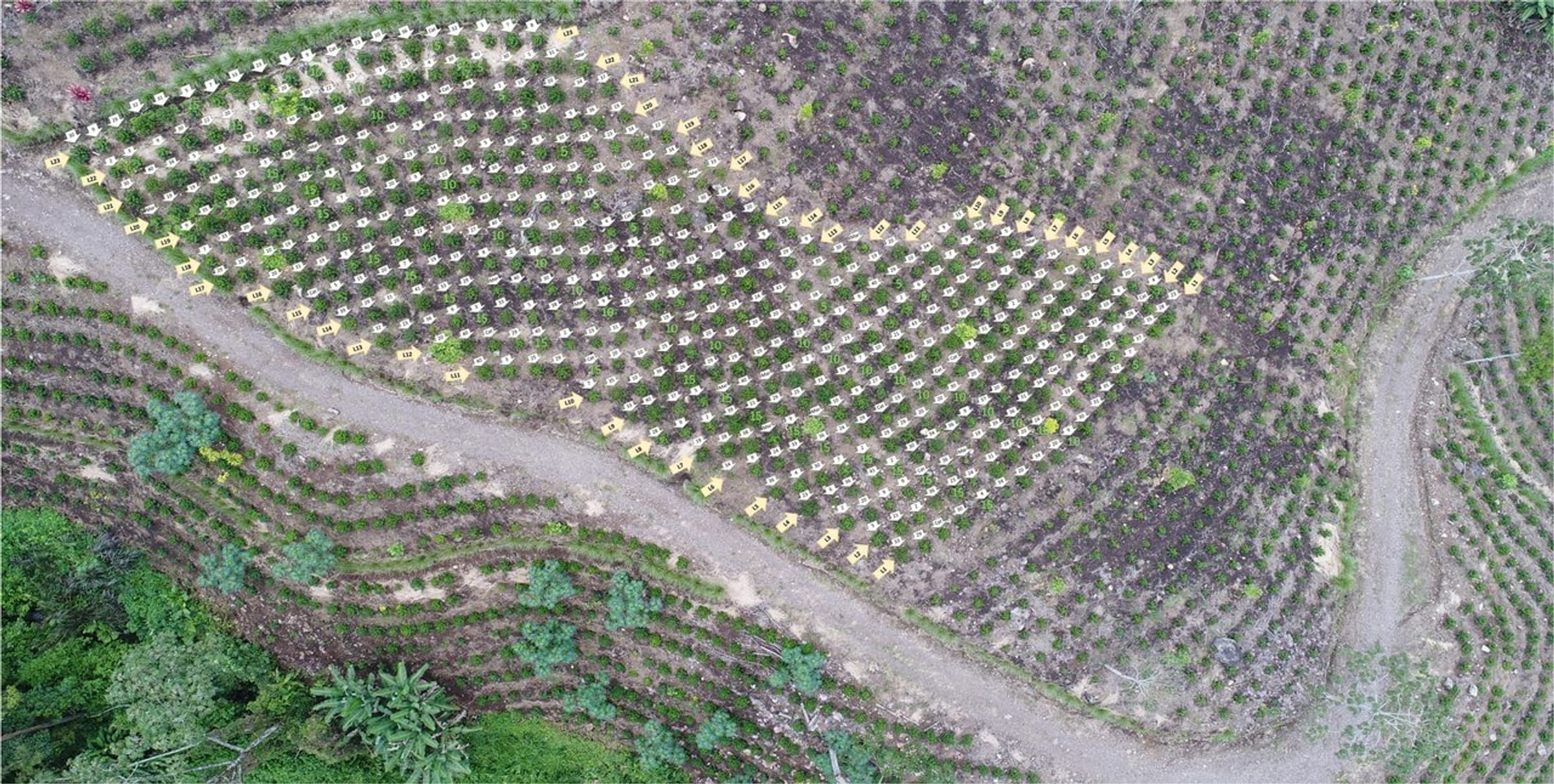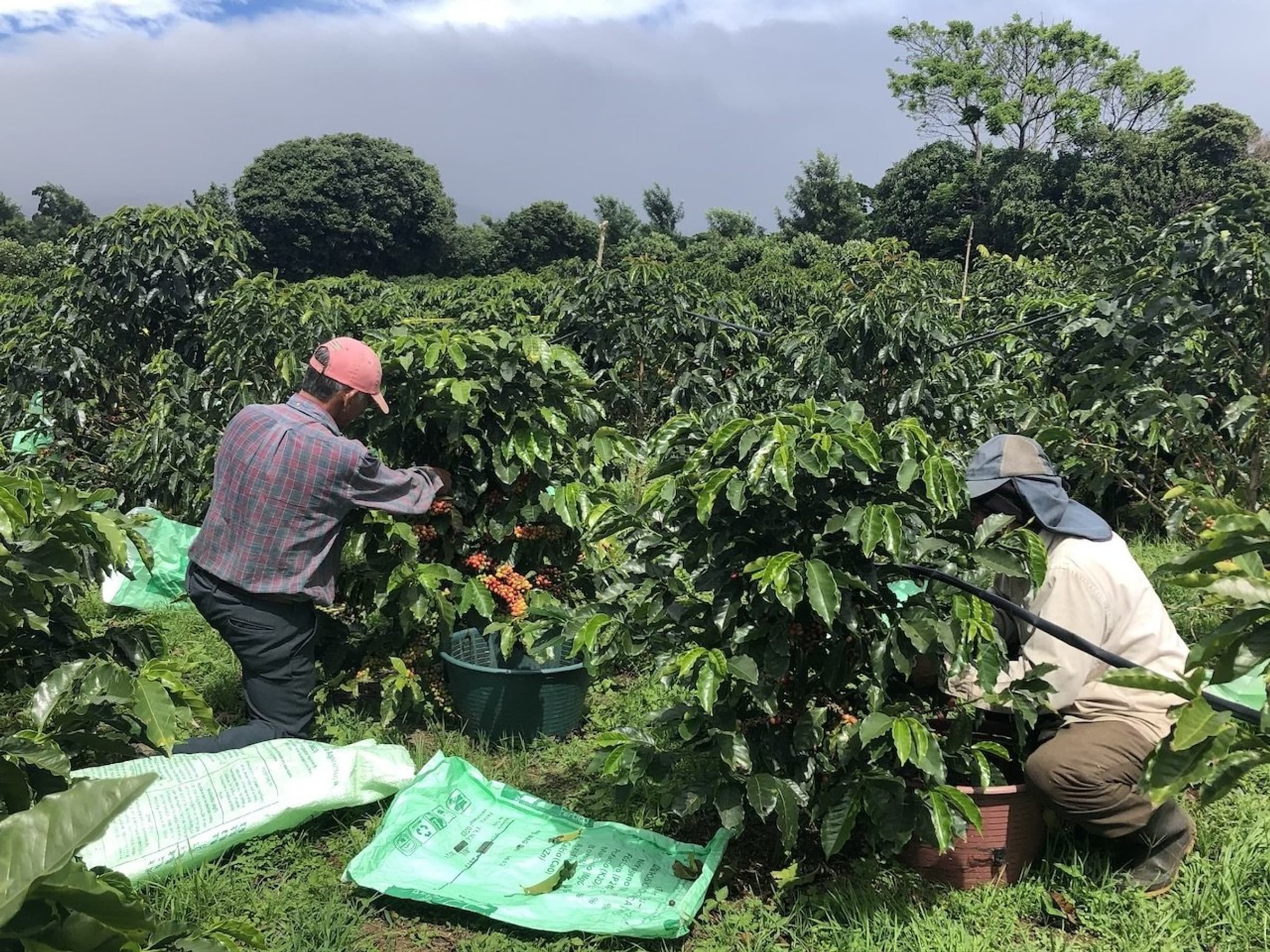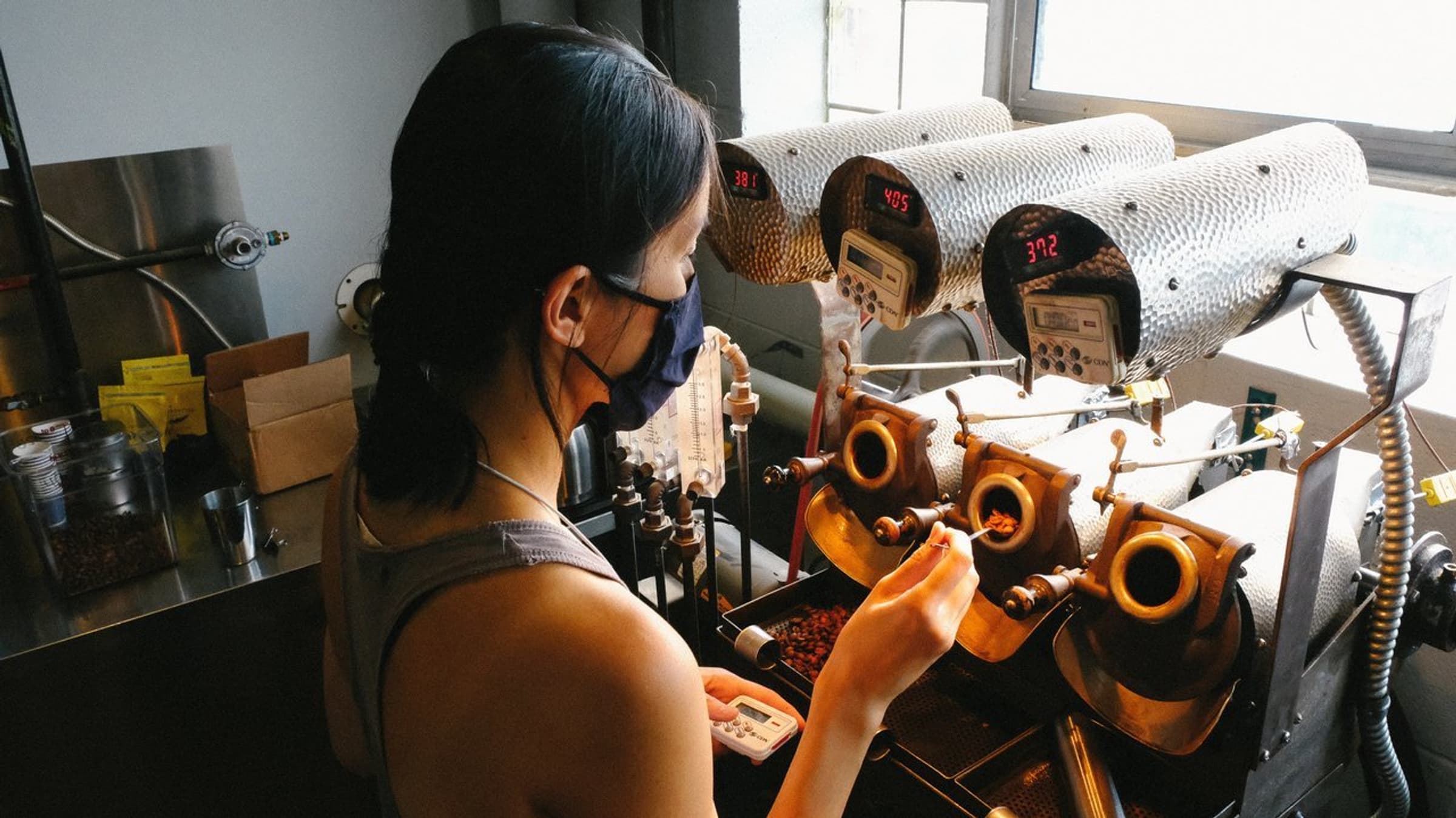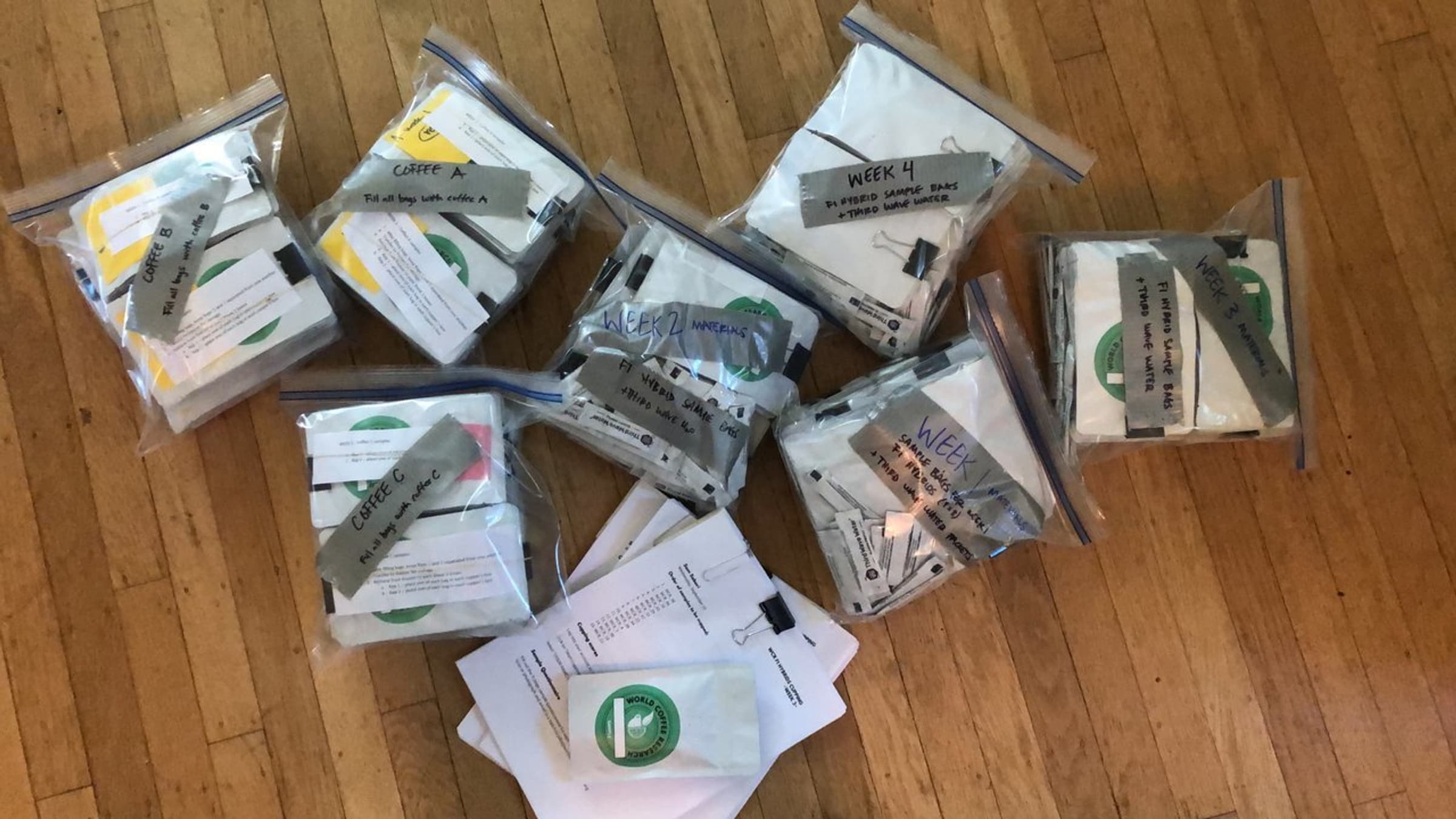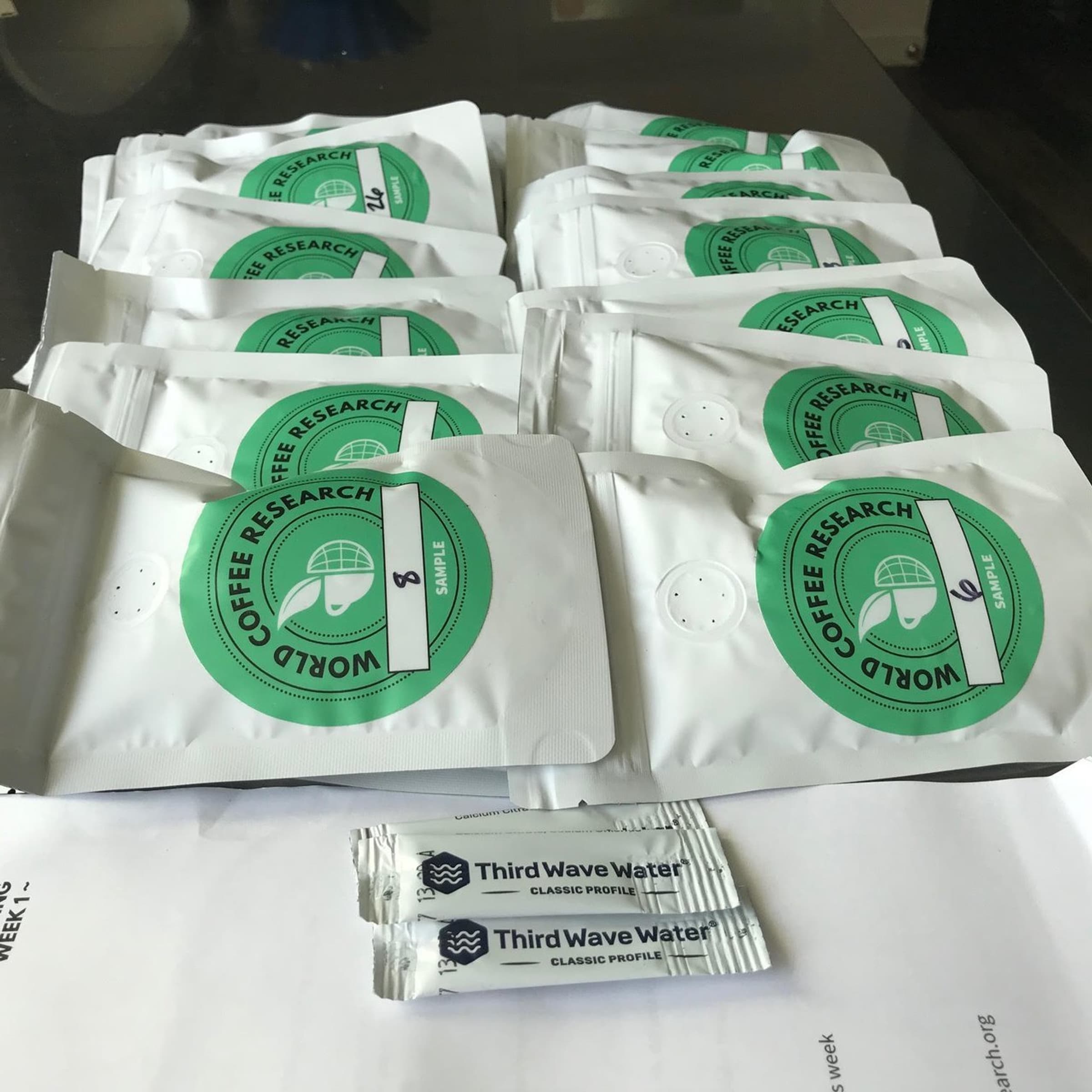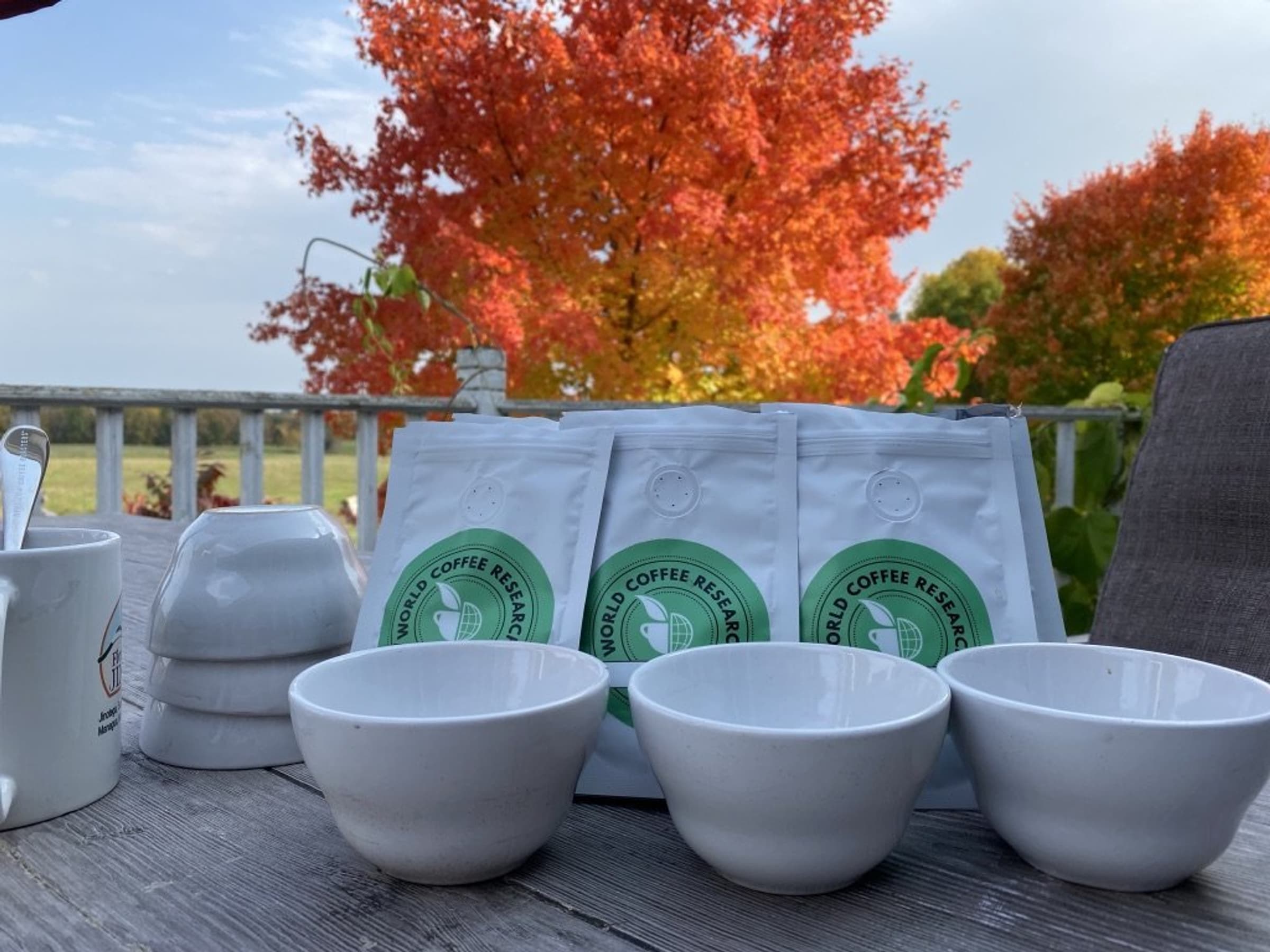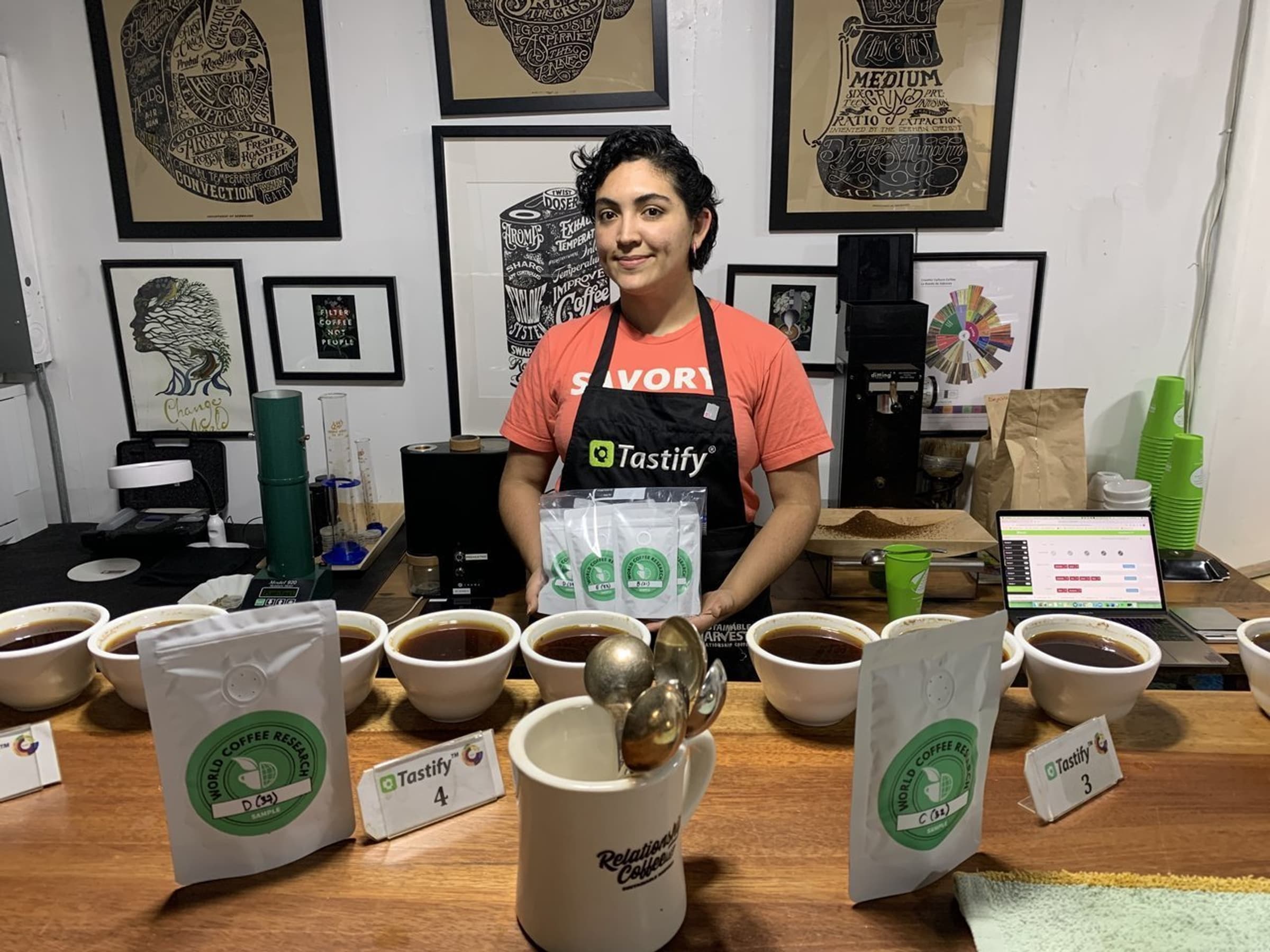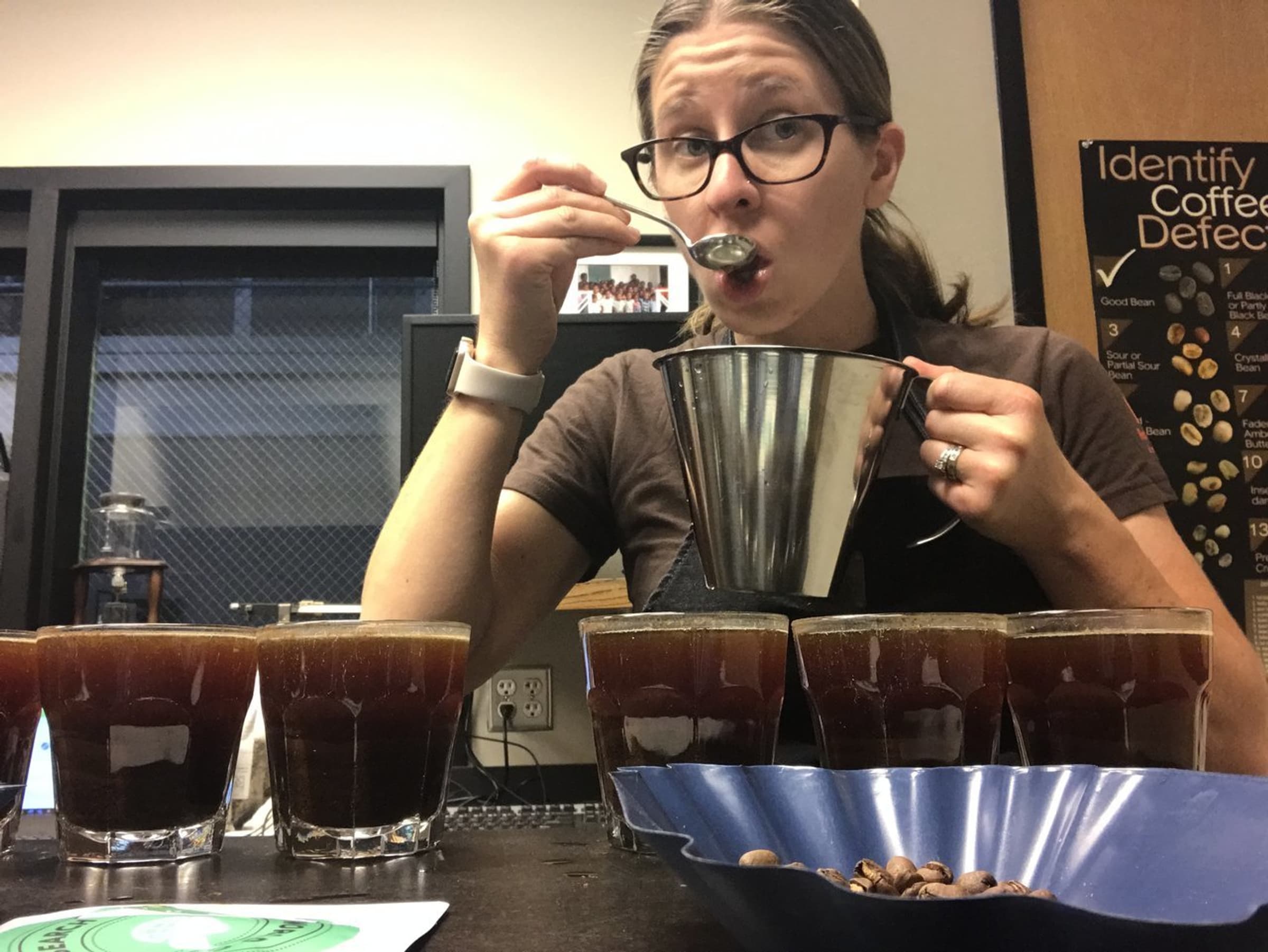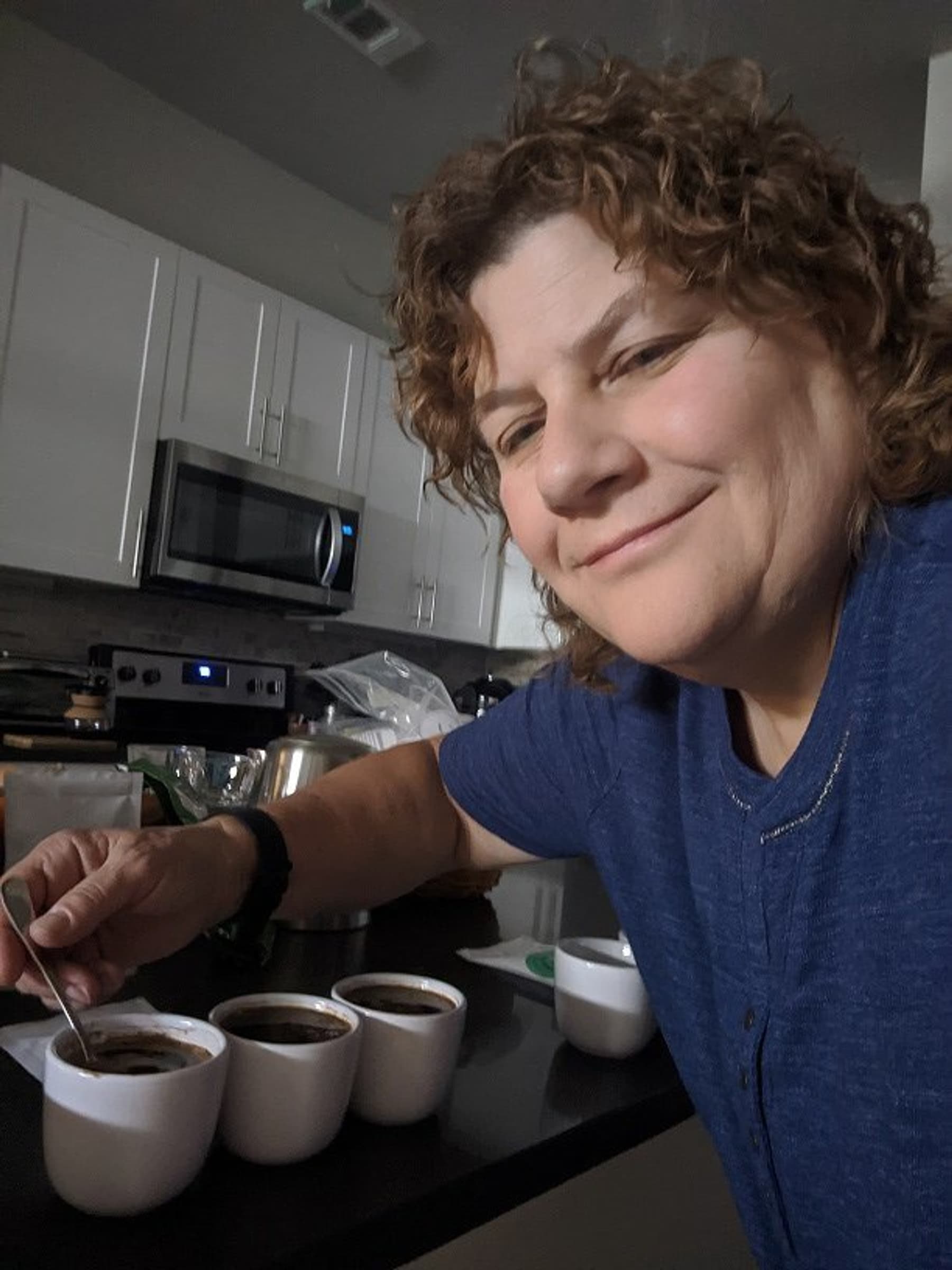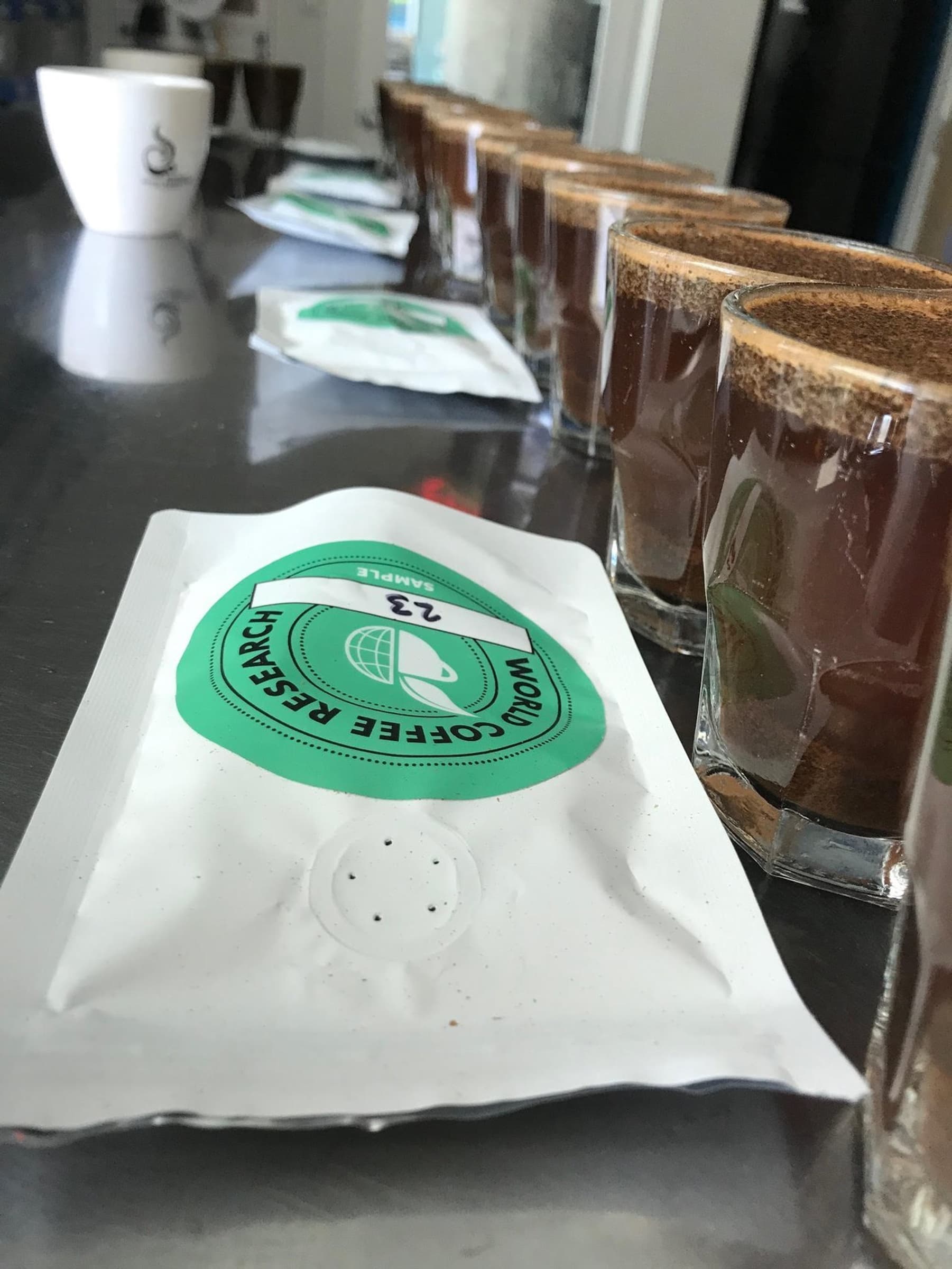Tasting a new variety for the very first time
WCR kicks off a program to involve industry cuppers in in tasting varieties from trials around the world
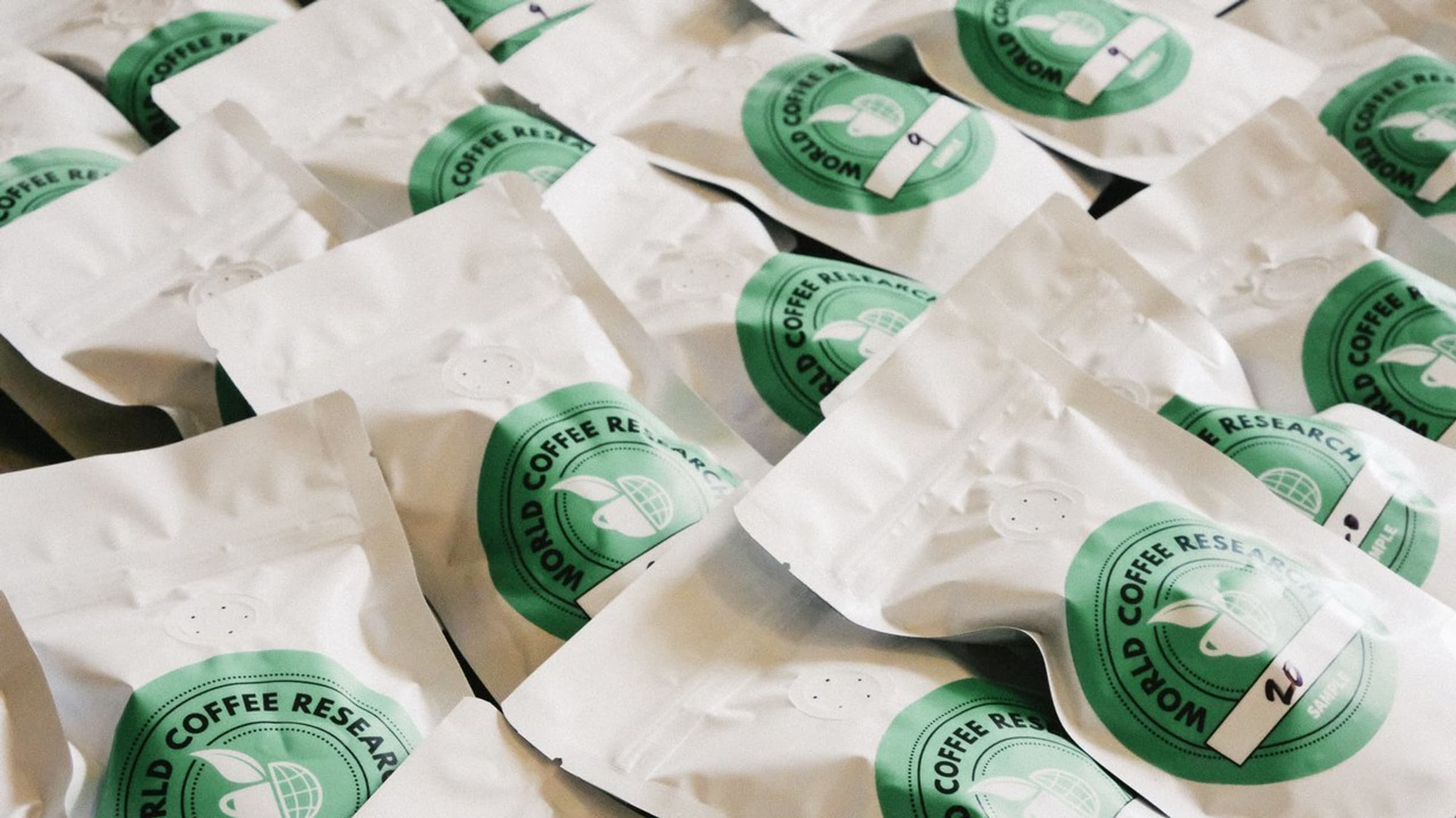
Since our inception in 2012, World Coffee Research has worked to establish dozens of trial sites around the world testing both existing and new varieties in different environments, both on research stations and in farmers’ fields. Many of those sites are starting to produce mature harvests, meaning the trees are ready to be evaluated for performance in the field—and in the cup.
In 2015, World Coffee Research initiated the creation of a group of 43 high-performing varieties called F1 hybrids. The trees were planted in four sites in Costa Rica, El Salvador, and Rwanda between 2017 and 2018. In 2019, the sites in Central America produced their first production harvest.
WCR invited 20 industry cuppers to evaluate 33 of the new variety candidates from two different sites in Costa Rica. While the primary intent of the cuppings was to gauge buyers’ feedback on the coffees, a subset of cuppers participated in a more rigorously controlled cupping experiment, the results of which will be shared soon.
The cuppers represented coffee companies from throughout North America and Europe, including Allegro Coffee, Caravela Coffee, Chameleon Coffee, Community Coffee, Dunkin’, Farmers Brothers, Intelligentsia Coffee, Keurig Dr Pepper, Olam Specialty Coffee, Java City, Lavazza, Mercon Specialty, Peet’s Coffee, Royal Cup, S&D Coffee, The J.M. Smucker Co., Starbucks, Sustainable Harvest, Swiss Water, and Taylors of Harrogate. The international team of specialty, premium, and commercial coffee buyers and tasters was the first to taste these candidates; their feedback will inform the selection of which of the trees advance to further testing and which are removed from consideration for potential future commercial release. The cupping represents the first of many planned opportunities for WCR members and other industry cuppers to provide feedback on WCR trial materials, as well as to our partners at numerous national breeding programs around the world.
Thank you to all coffee buyers who took part in these evaluations, and special thanks to Intelligentsia and Counter Culture Coffee, which roasted the samples for both cuppings.
The following photo essay documents the process from start to finish, originating at the coffees’ inception in Costa Rica, and concluding with their evaluation in buyers’ labs.
An aerial view of the Aquaries farm in Turrialba, Costa Rica, which provided some of the F1s for the cuppings. Sitting at an elevation of 1,100 masl, the trees were planted in April 2017 and harvested in November 2019.
The F1s are harvested at Starbucks’ Alsacia farm in Alajuela, Costa Rica. These coffees were planted in May 2017 at 1,600 masl, and harvested in November 2019.
Kim Nyugen of Intelligentsia roasts samples for the F1 hybrid cuppings. Originally, the cupping was planned as an in-person cupping at Intelligentsia’s Chicago Roasting Works on March 14—but the event had to be canceled at the last minute because of the COVID-19 pandemic. Instead, over the summer we pivoted the event to a “virtual” format, which necessitated roasting nearly four times as much coffee. It was a huge effort for the Intelligentsia and Counter Culture roasting teams to sample-roast nearly 500g of each of the 33 different F1s evaluated in the cuppings—requiring three to four full days of roasting time.
WCR communications director Hanna Neuschwander packed all samples for the cuppings in her Portland, Ore., home, before shipping them to participating cuppers.
Participating roasters received a weekly box of samples to cup, along with Third Wave Water packets to ensure all cuppers tasted similar results.
Participating buyers then conducted their cuppings in the location of their choosing. Christy Thorns, director of sourcing at Allegro Coffee, set up her cupping with a scenic view at her Minnesota home.
Yimara Martinez, quality control manager at Sustainable Harvest, evaluated the F1s at the makeshift cupping lab she assembled when the COVID-19 pandemic prevented her from cupping at Sustainable Harvest’s office.
Emily Bollinger, green coffee manager of Peet’s Coffee, cupped the F1s at Peet’s headquarters in Emeryville, Calif.
Laurie Serianni, coffee product development scientist at Keurig Dr Pepper, cupped the F1s in the comfort of her kitchen in Vermont.
The cupping was the first of many planned for 2020 and beyond, helping to build a meaningful bridge between WCR’s variety trials, national coffee breeding programs, and the coffee-buying community. Thanks again to our partners for their participation in this fun virtual event!
